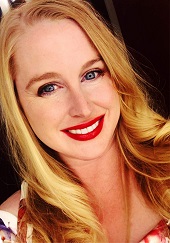Despite the seriousness of the time periods, readers and pastry-lovers will delight in the recipes found throughout the book. In the 1870’s timeline, Lisette opens her own bakery to feed her starving neighbors and keeps a notebook of recipes with personal notes added as she creates her delicious confections. Runyan explains, “It’s not a cookbook, it’s her notebook. It’s Lisette’s notebook, and Micheline starts adding to it… I wanted her to add to it. I wanted it to be a working, living document…” However, she advises readers against actually following the recipes. “…for those of you following along who are avid bakers, I would not suggest trying to follow them because they are, you know, put it in a hot oven. Well, what the heck is a hot oven? Which is about 450 degrees, but it would be easier to find more modern recipes…” As far as incorporating more food in her stories, Runyan has included recipes in a few other books and explains why baking is important in her historical novels. “…It’s really becoming a thing for me… foodie fiction…. I had a baker in my very first book… Baker was one of the most important, esteemed people in the town back in the 1660’s, especially, we can’t overstate the importance of bread in the French diet, and the further back you go the more true that is.”

I think the biggest value that one gets from these [writing] associations is just a sense of community… you don’t have that kind of competition because we’re all trying to lift each other up in the writing industry. I found that the few people that seem hyper competitive don’t tend to make it as well because they’re not supporting the community, and therefore aren’t being supported in turn, at least not as much as they could be.”


Baking is cheaper than therapy.”

Podcast: Play in new window | Download
Subscribe: RSS

Want to join the discussion?
Feel free to contribute!